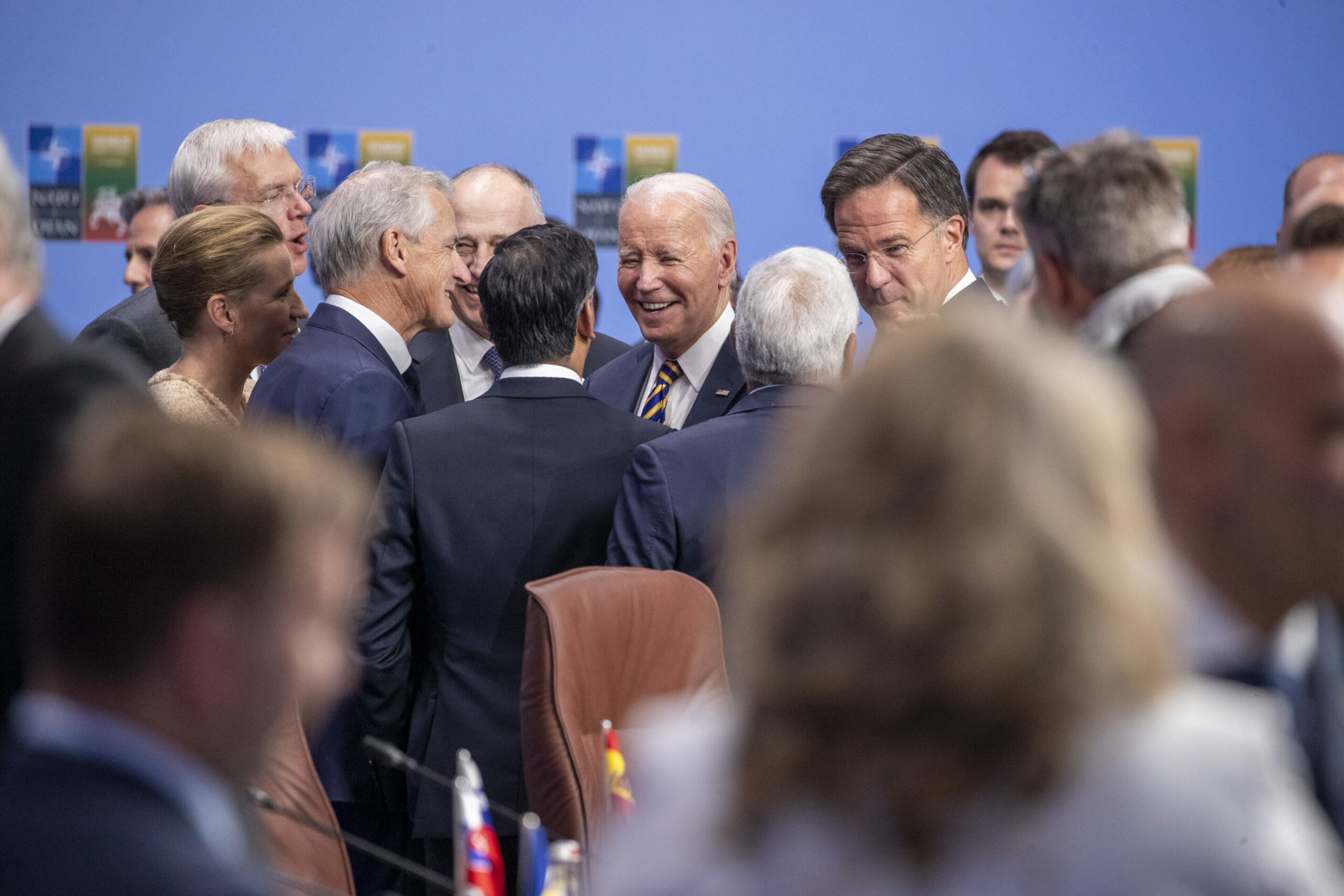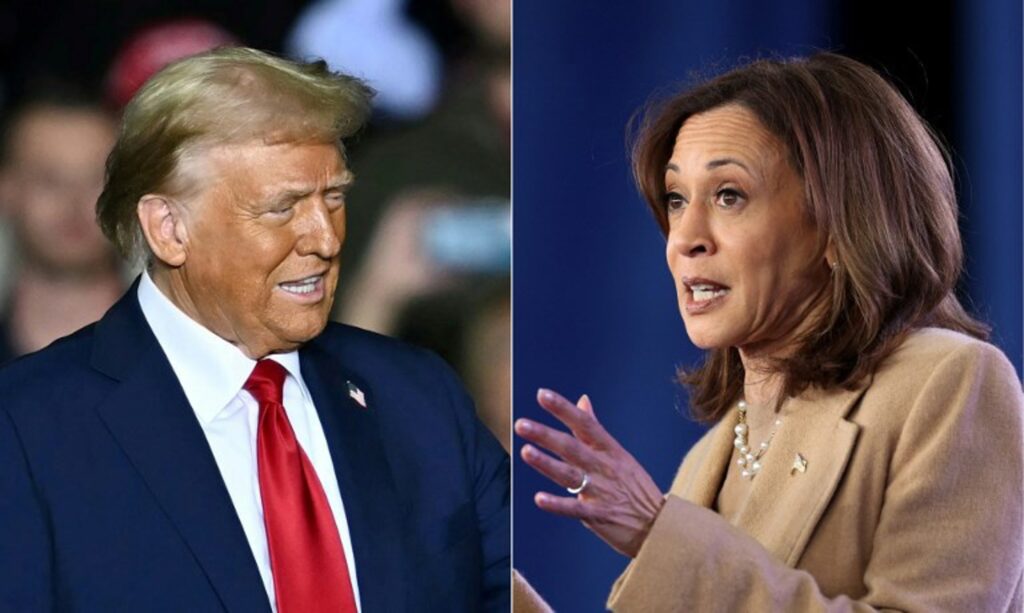Election Day has arrived in the United States after months of candidates campaigning to win votes. While the focus has been on an anxious America in the run-up to the elections, the outcome will also be crucial for a weakened Europe.
Vice-President Kamala Harris and former president Donald Trump are nearing the end of their close-fought race for the White House. The final set of the New York Times/Siena College polls on Sunday showed the results in all seven battleground states are within the margin of sampling error, meaning no candidate has a decisive lead.
From immigration and housing to tax cuts and the middle-class economic situation, the outcome of the presidential elections will have wide-ranging implications for Americans on various levels, leaving many citizens on edge. However, on the other side of the Atlantic, Europe is also getting jittery.
"Whoever wins the election will have a significant impact on the US' position in the world and its relationship with Europe, both in terms of security and trade and technological regulation," Linde Desmaele, an expert in US-Europe relations at Leiden University, told The Brussels Times.
A Harris win is expected to bring a continuation of current policy under President Joe Biden, while Trump offers a stronger contrast to the status quo. A Trump victory will also undoubtedly empower and serve as inspiration for the far-right in Europe, further driving political divisions across the continent. "Logically, therefore, a possible Trump presidency will receive more attention in Europe than Harris."
Ukraine and NATO
Geopolitically, concerns about a second Trump term are especially high among leaders of European countries in NATO. In his previous term, Trump's approach to foreign policy was characterised by strong criticism of the military alliance, which he threatened to leave several times. Earlier this year, he even suggested he would tell Russia to attack NATO allies that he considered "delinquent".
The prospect of Trump's return to the White House has fuelled concerns of a reduction or withdrawal of US support for NATO, which would weaken its cohesion. It has also become synonymous with more intense US pressure on European defence spending targets.
"With Trump, there will be a strong emphasis on 'burden-sharing' within NATO," said Desmaele. "Under Harris, the US is likely to adopt a 'business as usual' stance within NATO, where emphasis is placed on transatlantic cooperation but under US leadership," including concerning Russia and Ukraine.

US President Joe Biden pictured during a NATO summit. Credit: Belga / Nicolas Maeterlinck
She noted that the future of Ukraine – both the support in the war as well as its relationship with the EU and NATO – will remain hot topics in the coming years. Harris, a strong critic of Putin, is expected to take a more pro-Ukraine stance and will likely continue Biden's line, "with Ukraine having (more) of a voice in talks about its future geopolitical position."
Meanwhile, Trump's ambivalence toward Kyiv's fight against Russia has European leaders worried that he might scale back or alter US aid to Ukraine if re-elected. "Trump has previously indicated that he will solve the war quickly, but what such a solution would look like, and to what extent Ukraine would have a say in it, is unclear," Desmaele explained.
However, even under Harris, there are concerns in Europe that aid for Ukraine would wane, with growing war fatigue among the US public and potential resistance from a Congress that could soon lean Republican. Without continued backing from Washington, there are concerns about how much longer Ukraine will be able to hold out against Putin's forces.
Desmaele added that the Middle East conflict is likely to remain a sensitive issue under both presidents. In her closing pitch for the presidency, the Democrat aspirant promised to end the war in Gaza. Analysts predict Trump would give Israeli Prime Minister Benjamin Netanyahu a freer hand, while Harris would force the country to make more compromises.
Economic shock
The outcome is also expected to impact the economic side of the US foreign policy. "Under Trump, I expect a preference for bilateral relations with individual countries with which Trump sees shared interests (and ideological convergence), rather than with the EU as a whole," Desmaele said.
Trump's appetite for imposing tariffs on US partners is causing concern in Europe, which is already struggling with sluggish economic growth. Some experts have warned that a blanket tariff on EU exports to the US would represent a major shock to the European economy.
Under Harris, another continuation of current policies is expected, where the EU is recognised as an actor. "In both cases, however, issues such as trade and technology (standards) will remain the subject of difficult negotiations." The US is also expected to continue to pivot toward Asia.
Desmaele pointed to the continuation of an ongoing trend which has seen US interest in Europe decline for more than two decades. "Neither Trump nor Harris will fundamentally revive it," she said.
Instead, European leaders and policymakers should think about how Europe can proactively promote its own interests in an increasingly dangerous international landscape (regardless of who wins this election). "This will sometimes be autonomously but also in cooperation with the US in shared interests, of which there are still many."

